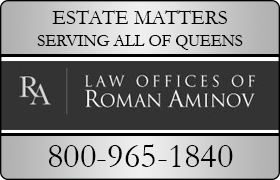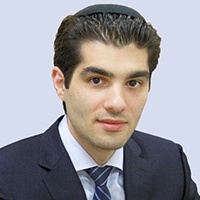Levittown Trusts Lawyer, New York
Sponsored Law Firm
-
 x
x

Click For More Info:
-
The Law Offices of Roman Aminov
147-17 Union Turnpike Flushing, NY 11367 » view mapElder Law, Probate, Estate Planning Free Inital Phone Consultation
The Law Offices of Roman Aminov is a client centric trusts and estates practice concentrating in estate planning, elder law, and probate.
800-965-1840  Roman Aminov
Flushing, NY
Roman Aminov
Flushing, NY Attorney At Law - New York, 2011
 Testimonials
Testimonials"Roman went out his way to help me. He made several attempts to contact me."
 Contact UsEmail or Call 24/7
Contact UsEmail or Call 24/7Call for free initial consultation,
800-965-1840.
James Patrick Cronin
Wills & Probate, Trusts, Estate, Elder Law
Status: In Good Standing Licensed: 33 Years
Gerilynn Fedrich Falasco
Wills, Trusts, Estate, Elder Law
Status: In Good Standing Licensed: 20 Years
Martin Sussman
Trusts, Excise Taxes, Commercial Real Estate
Status: In Good Standing Licensed: 64 Years
Joseph L Hunsberger
Real Estate, Wills & Probate, Trusts, Estate
Status: In Good Standing Licensed: 25 Years


 Testimonials
Testimonials Contact UsEmail or Call 24/7
Contact UsEmail or Call 24/7
